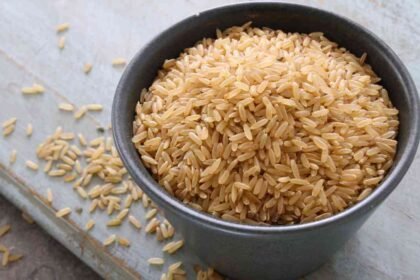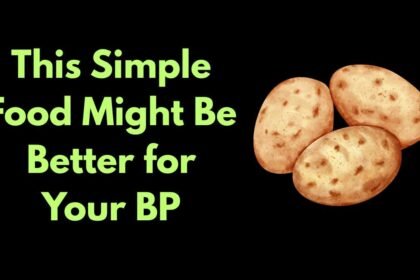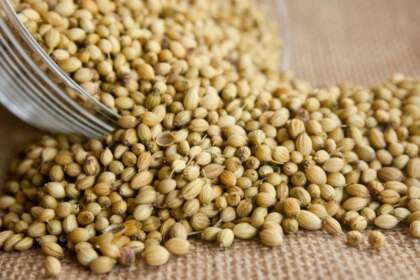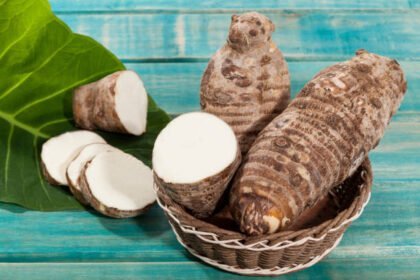Rambutan, a tropical fruit with a unique appearance and flavor, is becoming popular. Rambutan, a Southeast Asian fruit, provides vitamins, minerals, and antioxidants. Rambutan is also utilized in traditional folk medicine for its therapeutic benefits.
Indonesia, Thailand, and Malaysia were the major producers of rambutan in 2020, according to the FAO. The US imports approximately 3,000 metric tones of rambutan annually, demonstrating an increasing demand for this exotic fruit.
This page discusses rambutan’s nutritional and therapeutic worth, including its macronutrient and micronutrient content, folk medicine usage, and modern scientific investigations on its possible health benefits.
We’ll also talk about rambutan’s active ingredients and how they may help heart health, blood sugar, cancer prevention, and skin health. Finally, we will discuss rambutan safety and how to include it in a balanced diet.
Nutritional Value of Rambutan

Originally from Southeast Asia, the rambutan is now cultivated in numerous tropical regions, including South America and Africa. This little, spherical fruit has a hairy, red or yellow skin and a sweet, juicy white interior. The flesh of the rambutan fruit is edible, and it also contains many healthful components.
1. Macronutrients and Micronutrients Found in Rambutan
Rambutan is rich in both macro and micronutrients, all of which play a role in keeping you in excellent health. Rambutan contains all three of the macronutrients: carbs, proteins, and fats. Also helpful for digestive health is the fruit’s fiber content.
Vitamin C, an antioxidant that prevents cell damage from free radicals, is particularly abundant in rambutan, making it a valuable source of micronutrients. It also has vitamin B6, which is essential for the digestion of proteins and carbs, and vitamin A, which is necessary for healthy eyesight.
Potassium, which aids in blood pressure regulation, and iron, which is necessary for the development of red blood cells, can both be found in plenty in rambutan.
2. Rambutan Nutritional Comparison to Other Fruits
As compared to other fruits, rambutan comes out on top in terms of its nutritional worth. Rambutan, like other tropical fruits like mangoes and papayas, has about 69 calories in a 100-gram meal.
Nonetheless, it has fewer calories and less sugar than these fruits, with about 15 grammes of sugar per serving compared to 23 grammes in mangoes and 12 grammes in papayas.
Compared to other fruits, rambutan has a lot more fiber—about 2 grammes per serving. It’s a lot more than those tropical fruits like mangoes, papayas, and pineapples.
As an added bonus, a single rambutan provides almost 40% of the required daily consumption of vitamin C. Compared to other popular tropical fruits, such as mangoes, papayas, and pineapples, this has an exceptionally high vitamin C concentration.
3. How the Nutrients in Rambutan Support Health
Rambutan nutrients are healthy. Rambutan’s high fiber content prevents constipation and lowers colon cancer risk. Rambutan’s vitamin C boosts immunity and prevents infections. Rambutan antioxidants reduce the risk of chronic diseases including cancer and heart disease by protecting cells from free radical damage.
Rambutan potassium lowers stroke and heart disease risk. Rambutan iron prevents anaemia and promotes red blood cell formation. Finally, rambutan vitamin A helps prevent cataracts and macular degeneration.
In conclusion, rambutan is a pleasant, nutritious fruit with many health benefits. Its rich fiber, antioxidant, vitamin, and mineral content enhance digestive health, immunological function, and overall well-being.
Medicinal Properties of Rambutan
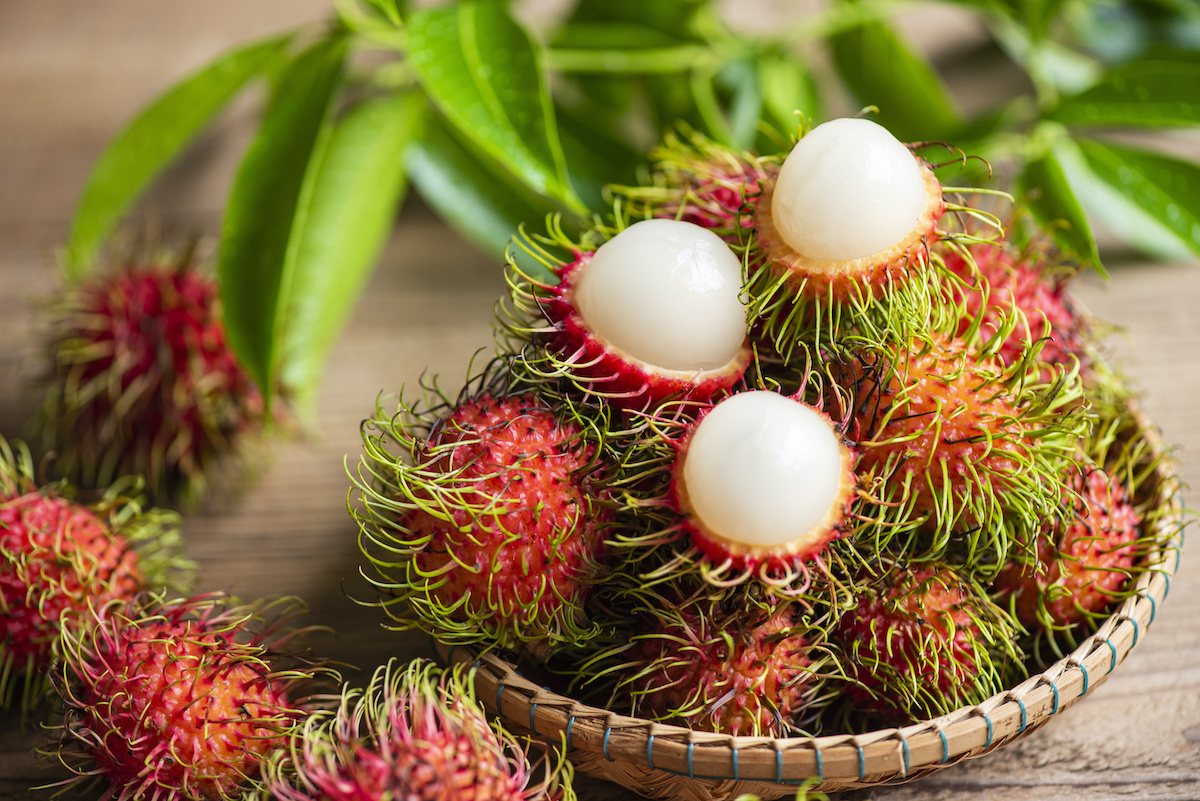
The rambutan is a tasty tropical fruit with several possible health benefits. Modern scientific research have validated many of the applications of rambutan that have their roots in its historical role in traditional folk medicine.
1. Traditional Uses of Rambutan in Folk Medicine
Rambutan has been used to treat a number of symptoms in traditional folk medicine, including fever, headaches, and diarrhoea. Its leaves have been used to treat fever and skin infections, while its bark has been used to treat diarrhoea and dysentery. Moreover, the fruit has been utilized to alleviate headaches and boost energy.
2. Rambutan’s Health Benefits in Current Science
Several of the rambutan’s traditional applications have been verified by modern scientific studies, and new potential health advantages have been uncovered as well. Antioxidant capabilities, such as those found in rambutan extract, have been shown in research to reduce the risk of cell damage from free radicals.
Anti-inflammatory properties observed in rambutan extract suggest it may also be useful in lowering the danger of developing serious conditions including cancer and cardiovascular disease.
Antimicrobial effects have been suggested for rambutan extract in several investigations; this would make it useful for inhibiting the development of pathogenic bacteria and fungi. Many types of bacteria, including Escherichia coli and Staphylococcus aureus, were found to be vulnerable to rambutan extract in a single research.
3. Active Compounds in Rambutan that Contribute to Its Medicinal Properties
The therapeutic qualities of the rambutan fruit are due in part to the presence of various active chemicals. Several of these, such as flavonoids, tannins, and phenolic acids, have anti-inflammatory and antioxidant properties. Furthermore, gallic acid, found in rambutan, has been demonstrated to have antibacterial effects.
Peel of the rambutan fruit is loaded with bioactive substances like quercetin and ellagic acid, which have anti-inflammatory, antibacterial, and antioxidant properties.
Overall, traditional use and modern scientific studies have established that rambutan is a fruit with various potential therapeutic benefits. The antioxidant, anti-inflammatory, and antibacterial properties come from its active ingredients like flavonoids, tannins, phenolic acids, and gallic acid.
Health Benefits of Rambutan
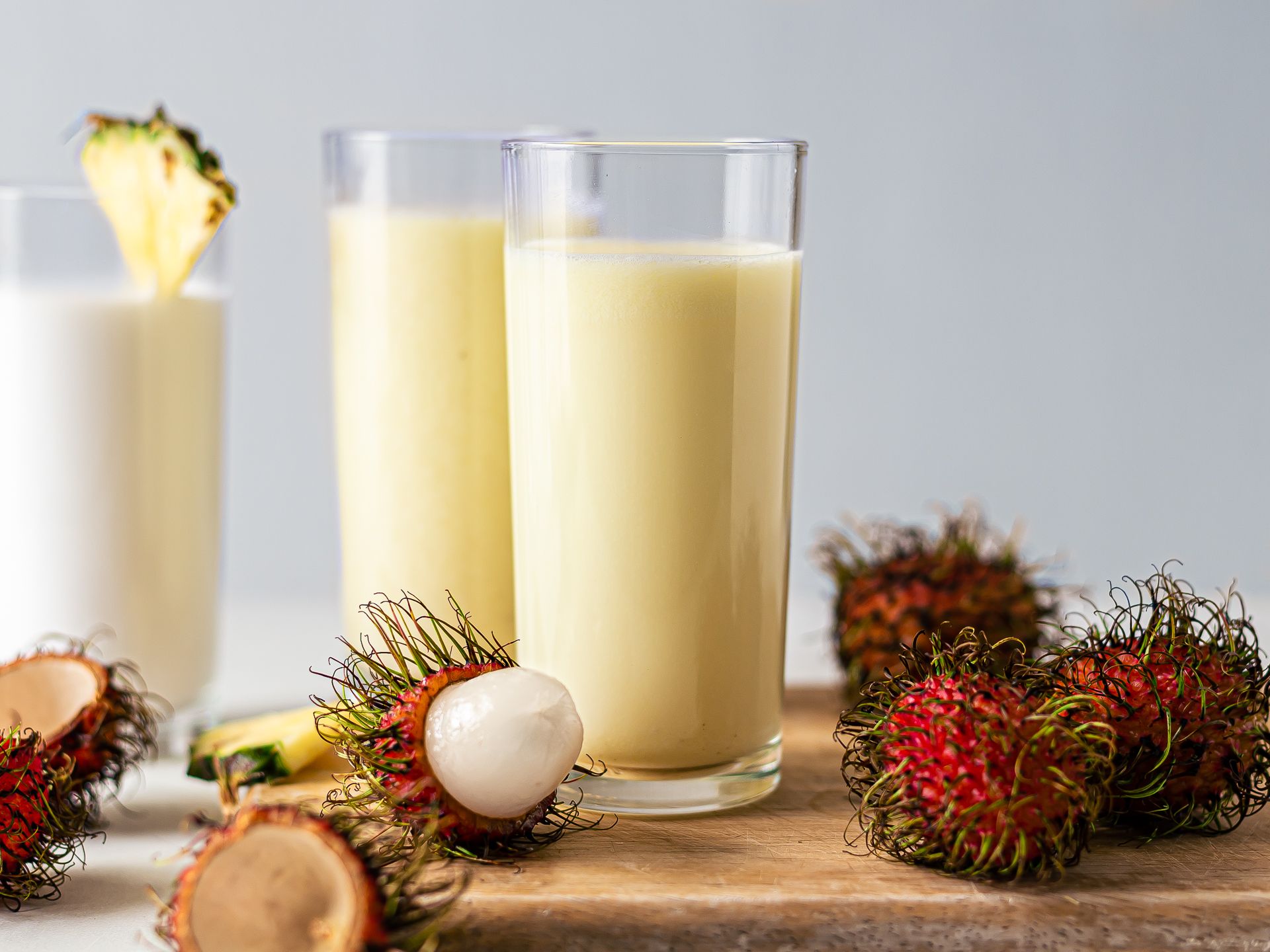
1. Heart Health
Because rambutan includes chemicals with antioxidant and anti-inflammatory actions, it can help reduce inflammation and oxidative stress in the body. Rambutan is found in Southeast Asian countries.
By lowering cholesterol levels, enhancing blood vessel function, and bringing down blood pressure, this can help reduce the likelihood of developing coronary heart disease.
2. Blood Sugar Regulation
Because of its low glycemic index, rambutan causes less of a spike in blood sugar levels after being digested and absorbed. Because of this, it is a healthy option for diabetics and those at risk of getting the disease. Researchers have shown that rambutan extract can assist diabetics lower their blood sugar and increase their insulin sensitivity.
3. Anti-Cancer Properties
The chemicals found in rambutan have been shown to have antioxidant and anti-inflammatory effects, hence lowering cancer risk. As far as cancer cells are concerned, research suggests that rambutan extract may have cytotoxic effects, meaning that it may help stop the growth and spread of cancer cells.
It has been found that the molecules found in rambutan can help enhance the immune system, which in turn can help prevent the development of cancer.
4. Skin Health
It has been found that chemicals in rambutan have antioxidant qualities, which can prevent free radical damage to the skin. Unstable chemicals known as free radicals have been linked to cellular damage, accelerated ageing, and disease.
Collagen is a protein that aids in skin firmness and elasticity, and rambutan includes vitamin C, an essential component in its synthesis. Rambutan extract has also been found in studies to increase skin moisture and lessen the visibility of fine lines and wrinkles.
5. Digestive Health
The fibre in rambutan aids digestion and keeps you regular. The fruit also includes chemicals with anti-inflammatory actions, making it useful for treating and preventing inflammatory bowel disease and other digestive problems.
6. Immune System Support
Vitamin C and other antioxidants are two of the immune-boosting components that can be found in rambutan, which also contains other beneficial compounds. These nutrients have the potential to assist in the strengthening of the immune system and provide protection against illnesses and infections.
Risks and Precautions
Consuming rambutan is generally regarded as risk-free; nonetheless, there are a few potential dangers and preventative measures that should be taken into consideration:
1. Allergic Reactions
Some people may be allergic to rambutan if they are also sensitive to other stone fruits. Itching, swelling, hives, and difficulty breathing are some of the symptoms of a rambutan allergy. It is advised to stay away from rambutan if you have a history of allergic reactions to similar fruits.
2. Pesticides
Rambutan, like many other fruits, could be sprayed with pesticides before being sold. Selecting organic rambutan is preferable, but if that is not an option, then at least being sure to fully wash and peel the fruit before eating it can help decrease your exposure to potentially dangerous chemicals.
3. Overconsumption
Overconsumption of rambutan, while it can be a healthy supplement to a balanced diet, can cause digestive difficulties like diarrhoea, bloating, and stomach cramps. Consuming rambutan should be done so in moderation, with no more than the daily recommended intake.
4. Interactions with Medications
Medications used to treat diabetes or high blood pressure may not mix well with rambutan. Before including rambutan in your diet, talk to your doctor if you’re on any kind of medicine.
5. Choking Hazard
If consumed whole, the seed of a rambutan fruit can be fatal. Before eating the fruit, it is best to take the time to remove the seed.






